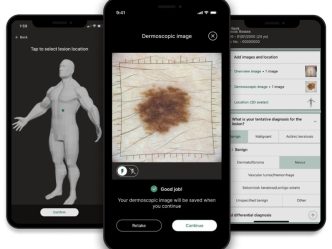Augusta University has more than 80 experts at hand to help reporters cover topics from health care to cybersecurity and beyond. Here are some trending topics to consider this week:
Men’s Health Month
June is Men’s Health Month and doctors are urging men, especially those over the age of 40, to get screened for cancers such as testicular, prostate and colorectal cancer. These cancers and other diseases are treatable if detected early; however, a lot of men still seem reluctant to book that visit and get checked. Drs. Jigarkumar Parikh and Martha Terris are available to answer questions.
- Why are men sometimes slow to get checked?
- Do people realize early prevention can save lives?
- Do men know how devastating these diseases, if not caught early, can be on their lives, sexuality and wellbeing?
Parikh is co-leader of the Georgia Cancer Center’s Genito-Urinary Oncology Program and a medical oncologist specializing in kidney cancer, prostate cancer, bladder cancer and melanoma.
Terris is the Witherington Distinguished Chair in Urology and chief of the Section of Urology at the Medical College of Georgia at Augusta University, where she specializes in urologic cancers including prostate cancer, bladder cancer and testicular cancer.
“When They See Us”
The recent release of the Netflix series about five teens from Harlem falsely accused of a brutal attack in Central Park raises questions about the power of the media in the public’s perception of news stories. The narrative is different with this production than it was in the media when the trials were going on, and still today, the media has the power to shape – or sensationalize – a news story. Associate Professor Matthew Buzzell is available to answer questions on this topic.
- What challenges do writers and directors face when trying to tell a story based on actual events?
- When has this been done correctly – and what happens when it fails?
- What role does the entertainment industry play in educating audiences about the truth in our collective past?
Buzzell is an award-winning, Emmy-nominated filmmaker whose films have screened at festivals around the world and broadcast nationally on PBS, Turner Classic Movies and Netflix.
Juneteenth
Most know Abraham Lincoln issued the Emancipation Proclamation on Jan. 1, 1863. But fewer know that it took more than two and a half years before a large number of enslaved people even knew they were free. It’s an astounding and sad part of our collective history that is finally being told on a broader platform. Professor Seretha Williams, an expert in Africa and African Diaspora, Digital Humanities, and Digital Publication, is available to answer questions on this topic, including:
- As America reconciles with its past, is it time Juneteenth was given more attention?
- What are children taught about the hard and painful journey most African Americans had to take when set free?
- Does Juneteenth need to be recognized as a national holiday?
- What do our educators and legislators need to do to make sure Juneteenth is known on a wider scale?
Contact our experts directly by clicking on the names above, or call 706-721-3893 to schedule an interview on any of these topics. Also, check out the Augusta University Expert Center to view a complete list of our experts.
See photos of this week’s experts and a trailer for “When They See Us.”
 Augusta University
Augusta University




